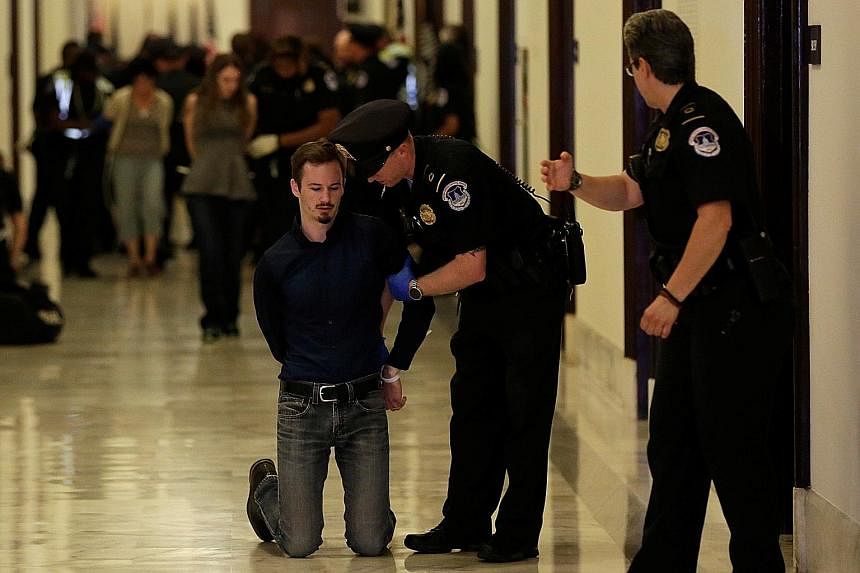WASHINGTON • •Senate Republican leaders have vowed to press ahead with their efforts to repeal and replace the Affordable Care Act, with a new version of their Bill today and a vote next week - regardless of the deep divisions within the party.
The week-long congressional recess only seemed to generate more doubts about the Senate healthcare Bill, but Senator Mitch McConnell, the majority leader, signalled that he was not ready to give up on his party's seven-year-old promise to gut Obamacare, former president Barack Obama's signature domestic achievement.
Accusing Democrats of obstructionism, Mr McConnell announced he would delay the Senate's scheduled August recess by two weeks so that senators could keep working.
But pessimism among Republicans still pervaded the Capitol on Tuesday, after a week spent in their home states that did little to resolve the disputes that thwarted a vote last month.
Republican Senator Charles Grassley, from Iowa, said he was "very pessimistic" about passing a Bill, while Senator John McCain, a Republican from Arizona, said it was "very possible, very probable" that the Senate Bill was dead.
Senator Susan Collins, a Republican from Maine, said: "Minor changes and tweaks will not be sufficient to win my support for the Bill."
Changes are coming, but none that is likely to radically alter the estimate by the Congressional Budget Office that 22 million fewer people would have health insurance in 2026 under the Senate healthcare Bill than under the Affordable Care Act. A new estimate is expected from the budget office early next week.
The revised Bill is expected to include a US$45 billion (S$62 billion) fund to help combat the opioid epidemic, as well as a provision allowing consumers to use health savings accounts to pay for premiums.
Senate Republicans are also likely to keep a pair of taxes imposed by the Affordable Care Act on people with high incomes. The law increased the payroll tax rate for many high-income taxpayers and imposed a tax on their investment income. Both taxes would be eliminated by the repeal Bill passed by the House in May and by the original version of Mr McConnell's Bill.
Keeping those taxes would undercut a major argument against the Bill by Democrats, who have branded it as a tax cut for the rich disguised as a health Bill.
But the largest changes to the healthcare system are likely to remain in the Bill. About two-thirds of the increase in the projected number of uninsured Americans would result from deep cuts in expected Medicaid spending, the budget office said. The Bill would impose caps on Medicaid spending and would roll back the expansion of the programme under the Affordable Care Act.
The Senate Bill will be considered under special procedures that limit debate to 20 hours, preclude a Democratic filibuster and allow passage with a simple majority vote.
It is unclear whether Mr McConnell would start the debate next week if he lacks firm commitments from enough senators to ensure passage.
Delaying the vote - again - might not help.
Said Senator John Kennedy, a Republican from Louisiana: "Anybody who thinks that it's going to get easier by waiting, that's a testament to the power of human denial as far as I'm concerned."
At least 10 Republican senators had urged the majority leader to work into next month so that lawmakers could show some results to their constituents.
Mr McConnell said delaying the recess would provide time to work on other matters after the Senate deals with healthcare next week. But the Senate Democratic leader, Mr Chuck Schumer of New York, suggested a different motivation for Mr McConnell's announcement.
"They're struggling with healthcare," Mr Schumer said. "They don't want to go home and face their constituents." He added: "The problem is not the timing. It's the substance."
NYTIMES

